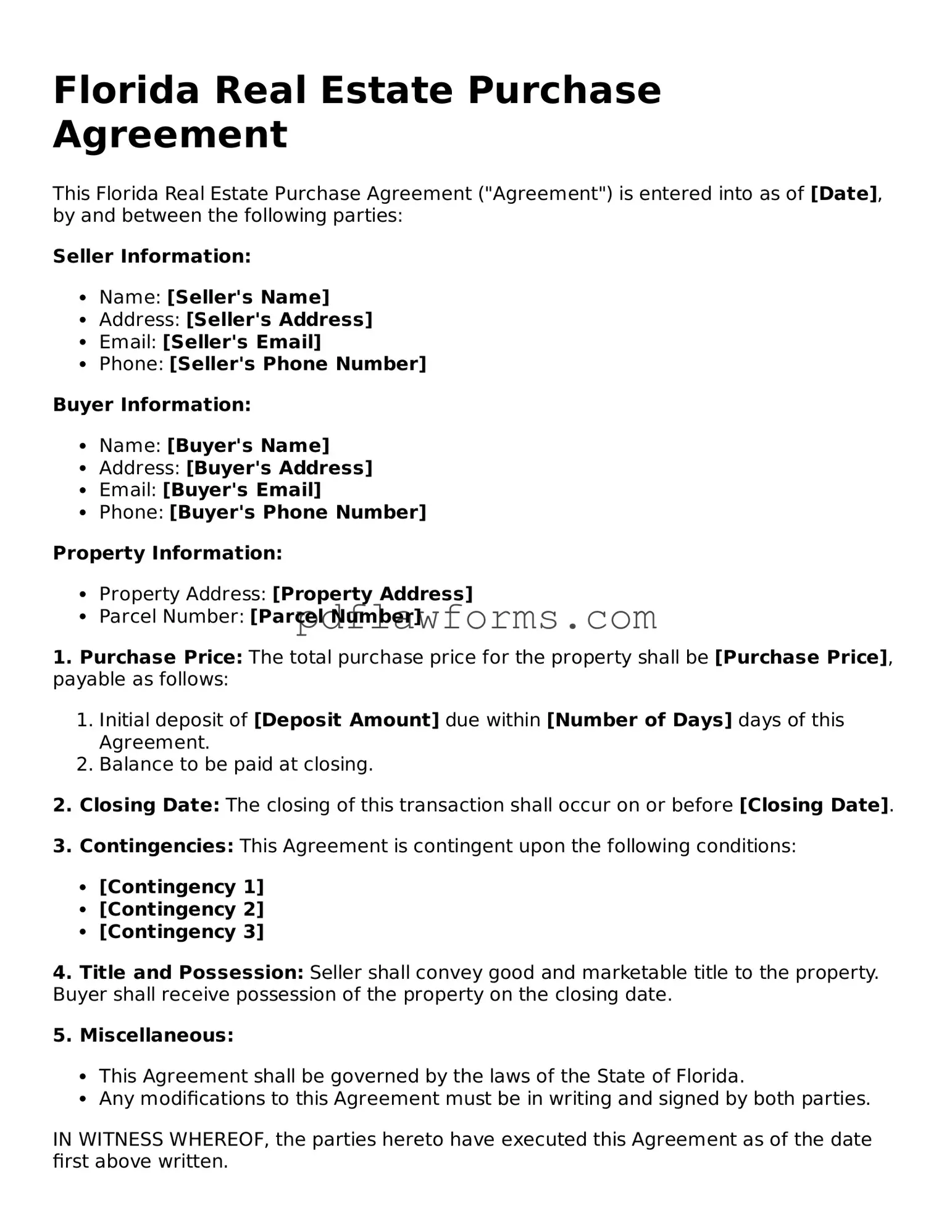Real Estate Purchase Agreement Form for the State of Florida
The Florida Real Estate Purchase Agreement form is a legal document that outlines the terms and conditions of a real estate transaction in Florida. This form serves as a binding contract between the buyer and seller, ensuring that both parties understand their rights and responsibilities. To begin your real estate journey, fill out the form by clicking the button below.
Make My Document Online

Real Estate Purchase Agreement Form for the State of Florida
Make My Document Online
You’re halfway through — finish the form
Edit and complete Real Estate Purchase Agreement online, then download your file.
Make My Document Online
or
⇩ Real Estate Purchase Agreement PDF
